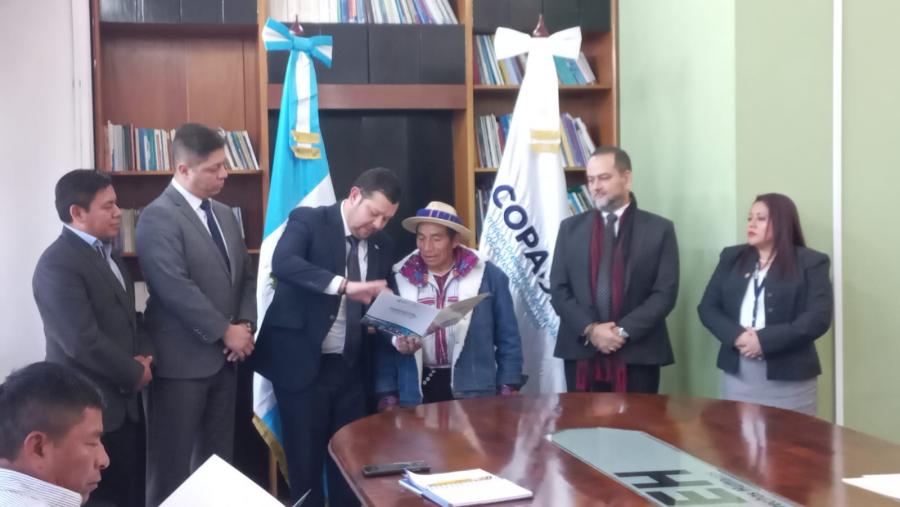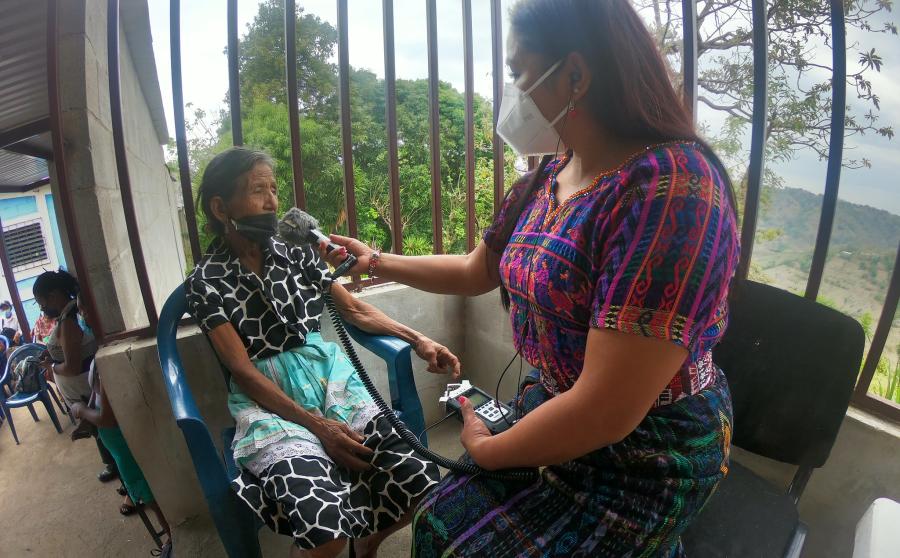
It has been two weeks since the passing of community radio founder and social and environmental activist, Daniel Pedro Mateo. Our team at Cultural Survival, as well as members of community radio stations in our network, have been deeply saddened by this loss. As well, many stations worry about similar repercussions in the future, feeling that the political climate is not safe for social activists or community leaders at this time.
Guatemala’s president, Otto Perez Molina who was a general in the military during the 36-year armed conflict, has a political policy that purports a strong hand against delinquency and crime. However, instead of responding to criminals, this militarized state is more often utilized against communities who are fighting for their rights. Daniel’s death came in a series of recent murders of Indigenous activists. Last year, anti-dam activist and community leader, Andres Fransisco Miguel, was shot and killed by security guards of Hydro Santa Cruz in Barillas. In March, Exaltación Marcos Ucelo, an Indigenous Xinca leader active against Canadian Tahoe Resources' silver mine in Jalapa was found beaten to death, after being abducted alongside three other Xinca leaders. Six months ago, seven Indigenous protestors were shot and killed by Guatemalan military in Totonicapan.
[[{"fid":"61693","view_mode":"media_original","type":"media","attributes":{"height":640,"width":960,"style":"width: 400px; height: 267px; ","class":"media-element file-media-original"}}]]
Protesters in Huehuetenango yesterday, holding signs that demand justice against the murders of social activists and leaders.
The dangerous state that Indigenous leaders and environmental activists find themselves in has been reflected in the words of community radio members since Daniel’s death. At a recent workshop, Antonio Gonzales of Radio Doble Vía stated, “We are living in a culture of silence, a culture of fear, just like during the war." Radio volunteers feel conflicted; while they feel that it is their responsibility to discuss these injustices, at the same time, speaking out causes them to fear for their lives. According to Jose Gomez, “People are afraid to speak against the big powers in this country because they face threats to their lives."
Despite the fear that station members have about speaking against the government and large corporations in Guatemala, they refuse to avoid the subject. Regardless of the risk involved, volunteers view it as their duty to cover these topics. Samuel Gomez, founder of Radio La Voz de Palestina says, “The authorities use their power to control us and silence us, but we won’t let them…community radio is a crucial tool to our development, we are the voice of our Indigenous communities."
[[{"fid":"61694","view_mode":"media_original","type":"media","attributes":{"height":640,"width":960,"style":"width: 400px; height: 267px; ","class":"media-element file-media-original"}}]]
As the community radio stations in our network refuse to step down in these difficult times, we will be by their sides, supporting them in any way that we can. As a result of our article regarding the death of Daniel Pedro Mateo, we were able to raise over $1,000 to offset funeral expenses and help his family in these difficult times. Although monetary aid is always a necessity, the most important role that we play is spreading the word about these injustices and the community radio movement far and wide. As long as community radio stations continue to provide alternative news to their communities, we will continue to support them by sharing their stories with our international audience.




